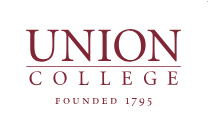Primary Sources
Primary sources are foundational documents that provide direct, firsthand evidence about a topic or event. These include original records, contemporary accounts, and other authoritative materials created by participants or eyewitnesses. Examples range from personal correspondence and journals to interviews, photographs, films, maps, and official government records.
In arts, history, and humanities fields, authentic primary sources are typically preserved in specialized institutions such as museums, archives, and library collections. Below is a collection of online databases that contain primary sources. This is just a selection, please see this complete list of primary source databases available through the college.
-
Archives Unbound This link opens in a new window
Topical collections of historical documents for academic research. Covers diverse subjects from the Middle Ages to the 20th century. Ideal for history students seeking primary sources on specific historical topics.
-
American Civil War Letters & Diaries This link opens in a new windowIncludes diaries, letters and memoirs. The product also includes previously unpublished manuscripts. The collection also includes biographies, an extensive bibliography of the sources in the database, and material licensed from The Civil War Day-by-Day by E.B. Long.
-
Ancestry Library This link opens in a new windowAccess to census documents; birth, marriage & death records; military records, and more. Invaluable information for research and genealogy searching.
-
Europeana This link opens in a new windowProvides access to images, texts, sounds, and videos digitized by a range of Europe's leading galleries, libraries, archives and museums.
-
History Vault This link opens in a new windowResearchers can access digitized letters, papers, photographs, scrapbooks, financial records, diaries, and many more primary source materials taken from the University Publications of America (UPA) Collections. This is the main page, with links to individual modules.
-
Homeland Security Digital Library This link opens in a new window
Covers a wide range of homeland security topics and are carefully selected and evaluated by a team of librarians and content specialists. Sources include, but are not limited to: Federal, state and local governments; International governments and institutions; Nonprofit organizations and private sector entities; Think tanks, research centers, colleges and universities, and more.
-
JSTOR This link opens in a new windowA digital library of back issues of academic journals, books, and primary sources. Core titles from each discipline included.
-
Women and Social Movements in the United States This link opens in a new window
Organized around the history of women in social movements in the U.S. between 1600 and 2000. The collection currently includes 116 document projects and archives with 4,700 documents and more than 160,000 pages of additional full-text documents, written by more than 2,450 primary authors. It also includes book, film, and website reviews, notes from the archives, and teaching tools.
-
Perdita Manuscripts This link opens in a new windowThe manuscripts in this site were written or compiled by women in the British Isles during the sixteenth and seventeenth centuries and they have been sourced from archives and libraries across the United Kingdom and the USA.
-
Black Abolitionist Papers This link opens in a new windowDetails the extensive work of African Americans to abolish slavery in the United States prior to the Civil War. Covering the period 1830-1865, the collection presents the massive, international impact of African American activism against slavery, in the writings and publications of the activists themselves. The approximately 15,000 articles, documents, correspondence, proceedings, manuscripts, and literary works of almost 300 Black abolitionists show the full range of their activities.
-
HathiTrust Digital Library This link opens in a new windowOffers a collection of titles digitized from libraries around the world covering numerous topics in multiple different languages. Material includes books, magazines, newspapers, sheet music, journals, and government documents. Login by searching for Union College to use the enhanced features.

